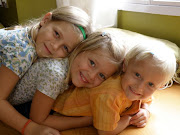The exit from the Mathura train station was crowded with people, some pushing their way out, some pushing their way in. Amidst the tumult of passengers, I saw a wave approaching me, a dozen or so men pouring in from the street, ardent men who would offer to help me find my way in this strange city.
Of course, I knew that whatever these men promised to do for me would be for a price, as this was their livelihood and their right. I was ready to oblige them in this way. But with the taste of freedom in my mouth and a bounce in my step, I was also ready to enjoy the game that these men played so well. Being the only foreigner in the field, I knew I was an obvious target and probably their first choice to solicit. They would guess rightly that I knew absolutely nothing about this place, their place. I was vulnerable, and yet being the only player who knew the plan in my mind, I could assume a position of control.
As the men dodged other arriving passengers, I initially lowered my head and pretended that I knew where I was going. Without making light of each desperate attempt to get my attention, I tried my best to look beyond the most eager eyes. I took one more breath of confidence before the words came like gunfire.
“Taxi!?”
“Rickshaw!?”
“Where you going?”
“You want hotel!?”
“Hello, sir!”
The boisterous competition was invigorating, and I could not help but smile. And it’s a very rare thing in India for a smile not to be reciprocated in generous fashion. That night in Mathura was no different. The friendly game of survival was on.
Before I could utter my own words and unveil my secret plan, I was stopped in my tracks by a firm tug on my backpack. I quickly turned myself around and set my eyes on the culprit behind me. It was a child, a boy, with one of the most stunning grins I’d ever seen. As his eyes caught mine, he began laughing. It was infectious. I joined him. The two of us stood facing each other there in the small open space that my sudden turning had created in the midst of the crowd. In that precious moment, it seemed that all the noise and confusion in the station were overcome by the joyful presence of that boy. As his laughter gained momentum his eyes danced in delight. It was my instinctive reaction to crouch down and reach out my right hand with palm raised just in front of him. It was a playful gesture that I had done countless times with my cousin’s kids back in Idaho. This boy too knew exactly what it meant, and he immediately raised his right arm over his head and came down with a solid slap, his hand on mine. It was a quick decisive move and it brought intense satisfaction to the boy. But in the split second that our hands were touching he already began to turn away and end our encounter. I stood up quickly and stepped in the direction he was going, wondering why he was running away. My eyes followed him with yearning. As he darted through the crowd, I noticed his bare feet and his tattered clothes.
Then I was alone again.
As I turned back toward the street, three men stood before me, jockeying for position with their eyebrows raised and their heads tilted upward.
The man directly in front of me spoke first, “Yes, boss! What do you want?”
“The bus station. Where’s the bus station?” I said with clarity and with a tinge of impatience.
“Come!” the same man said as he beckoned me to follow him. He was joined by one of the other two. I noticed that they were holding hands as they led me out to the street.
“Where you going?” the second man glanced back to enquire.
“Delhi,” I said without hesitation.
“Ten o’clock! Next bus is ten o’clock,” came the sure reply. “Station is only five minutes away by rickshaw. Please come.”
It’s important to sound confident in these situations. It’s part of the game. I was trying to convince them that I had a good plan and there was no need to stray from it. They were trying to convince me that they were capable enough to easily facilitate that plan for me. Early on, it seemed to be working for both parties.
As I followed my chosen guides out of the station, I glanced at my watch. It was 9:00pm, and I was feeling relaxed about my plan. Making our way past the taxis and autos, other drivers greeted me with smiles, but they politely honored the fact that I had already made my choice. Though that initial competition was over, the game was not. We were headed toward a clump of cycle rickshaws, which was across the street. I walked closely behind the two men through the traffic. Cars, bicycles, autos and rickshaws flowed around us in both directions as we strode across the street. Despite the noise and apparent dangers, it felt like we had just safely waded across a gentle stream.
There is a great word in the Hindi language, which is similar to the English use of the word, man, after another word, as in doorman, or garbage man. But the word in Hindi, wala, or the feminine, wali, somehow sounds better and seems to be more widely used. As I picked up a bit of Hindi during my travels, I would learn a wide variety of its uses, for things as well, such as the red one, or lal wala. But my first encounter with it was its use for the man who had command of the cycle rickshaw, the rickshaw wala.
On the other side of the street, my two guides approached the rickshaw walas. I decided to stand back and let them do their thing before I entered into the negotiations. As I waited, the bright face of the boy in the station was still shining in my heart. He was quickly becoming a saint in my memory, another angel in my path. I felt the pain again of his sudden departure.
“OK, sir! My friend take us to bus stand for fifty rupees.”
“Fifty rupees?!” I tried to sound shocked, “How about twenty?”
“No, no, no,” the emerging leader laughed, “your bag is heavy, and I also will come, for to help you.”
“OK, thirty rupees,” I countered confidently, though I cared little about the price.
“OK, forty,” he replied as he reached for my pack.
I wagged my head as best as I could, conveying my consent. I received a chorus of wagging heads in reply. I could tell that they savored the taste of victory, though they showed no jubilation. I was the only one smiling on the outside, but not smiling at anyone in particular except myself. Our rickshaw wala spun the cycle around and I boarded it with my new friend. With my pack on my lap and trust in my heart, we glided back into the stream and headed off in the direction of the bus stand. It’s a wonderful feeling riding on a rickshaw through traffic, open to the elements, exposed to the action. I imagined myself in a canoe with one hired hand busily paddling upstream and the other carefully planning for what would come around the bend.
We were not yet a minute into our ride when I heard from behind us the awful screeching of tires braking on the pavement, then a quick crash of metal. My companion and I both turned to look over our shoulders to see a cycle rickshaw over on its side trapped in front of a big black SUV. The accident was only two or three meters away from us, and it appeared that the person who was rolling on the pavement was the rickshaw wala himself. We stopped abruptly and all three of us instinctively started to get off. But before my feet hit the street, my companion quickly ordered me to stay seated while they saw to the incident. I submitted to his wisdom and watched from the rickshaw as a circle quickly formed around the mess.
What happened next is fixed forever in my mind. It is as clear as any memory I have of India. I see it every time I hear the screech of tires. I saw three things happen in quick succession, each telling a story and holding a history. It was a perfect three-act play, graphically performed before my eyes.
First, rising from the dust, was the injured rickshaw wala. As he staggered to his feet, one hand was waving high in the air keeping him balanced while the other was pressed tightly to a wound on his forehead. Blood was seeping out between his fingers and dripping down his face. He was in shock, and in pain. But more than that, his eyes were bright and quick with fear. Though he was surrounded, he was alone. Then he turned from facing my direction to facing the attacking vehicle, the dark mass that had broken in upon him.
In a second instant, the driver of the SUV burst forth out of the vehicle with hot anger seething from every pore. He was a fat man and short, wrapped in a tight-fitting suit jacket. He had the look of reckless power. He bounded toward the rickshaw wala with one intent, to mete out punishment. I couldn't understand the words that he was yelling, but the tone was unmistakable. With every ounce of energy within him, he was declaring blame. In one fluid movement he swooped in on his prey. As he reached the cowering rickshaw wala, he delivered such a firm blow to the head with his thick right hand that I could see the blood splatter. He raised his hand once more to strike again, but did not follow through. It was enough. With a look of disgust, he turned back toward his car, waddled over to the open door and disappeared inside, all the while avoiding every eye that looked on.
The third happening perfected the event. It was the waiting of the crowd, the watching. I saw it as hopelessness, but it was more than that. Hands came to help the injured, but the help they gave only emphasized the delay. In the delay, I could hear a thousand stories being told. The moments were frozen, dead. The crowd saw it all, but they could not interfere. Seemingly, it was not their place.
Despite the fact that I was observing from a distance, I was a part of the crowd. I was with them. I participated with them in the delay, and less in the aid. My heart was pounding and my strength was leaving me. Not knowing what others were feeling, I felt alone in my shame and guilt. My stomach was twisted and my mouth was filled with saliva. I leaned over to spit and held back the vomit. My body ached with weakness.
The black SUV backed away, letting loose the rickshaw from beneath it, then swerved around the commotion to continue on. The crowd melted in around the victim, some tending to his wound and some setting his rickshaw aright and assessing the damage. As I watched from my vantage point, it was abundantly clear to me that life would continue on for everyone there, mostly unchanged. The cycle would be fixed and the wound would heal. But I wasn’t quite ready to leave it alone. I was still shaking mildly when my companions returned to the rickshaw. I asked indignantly, “Was it his fault?”
My guide pursed his lips and tilted his head. “He was there, in the way. Yes, maybe his fault.”
“Why didn’t you guys stop that madman?” I pushed further, “Everyone just watched him hit that guy!”
“He’s a big man, rich man in Mathura. He can do that. No one will stop him.”
There was quietness between the three of us as we made our way to the bus station. I was angry and anxious and wanting to be alone. But after arriving at the station, I was glad to still have my companions with me. An open dirt field was filled with buses coming and going in every direction. I wanted to find my bus, find my seat and close my eyes.































